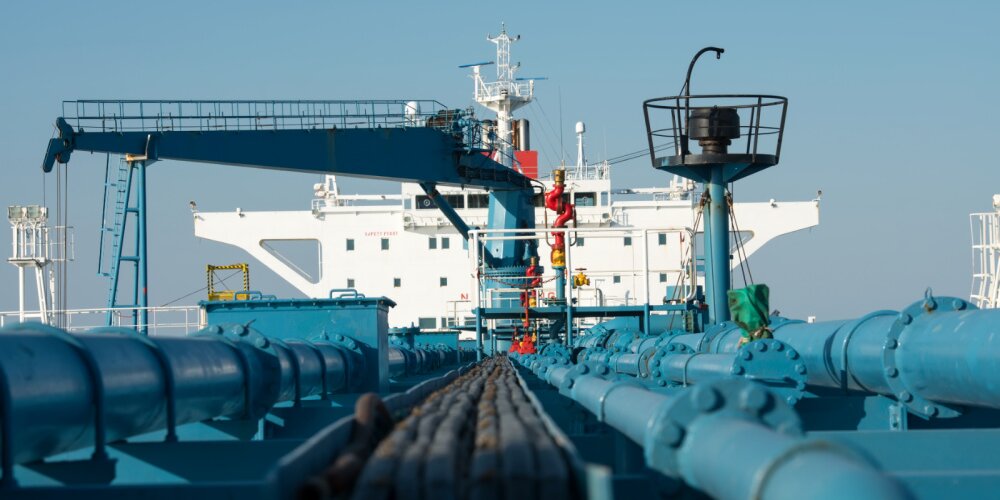Browse our services
Explore how Shearwater Law can help you
Find a maritime expert
Meet our team, find and expert and connect
Talk to our experts
Get in touch, we're here to help

Since 5 December 2022 (2709 crude oil) and 5 February 2023 (2710 petroleum products) it has been permitted to carry and discharge Russian oil and products to places outside the EU, G7 and Australia (by way of exception to the general prohibition on such activity) provided that the price cap requirements are complied with. The price cap exception relies on an attestation process which demonstrates that the Russian oil or products has been purchased at or below the price cap. The requirement is for the cargo to be at or below the price cap at the point of loading.
The attestation process is to be followed in addition to standard due diligence.
As of 20 February 2024, there is a new requirement to provide itemised costs information specifying the ancillary costs associated with the sale of oil. (See page 3 of this update for the types of costs envisaged). This information is to be shared as part of the attestation process. These costs are not to be included in the price of oil and must be invoiced separately at commercially reasonable rates. Additionally, attestations for Russian oil and products loaded after 24 February 2024 must be provided on a ‘per voyage’ basis and should be obtained within 30 days of each lifting or loading.
This new requirement means that itemised costs information must pass up the chain, where requested, as part of the attestation process. Traders must pass on itemised cost information to Charterers and then Owners are entitled to request itemised costs information from Charterers. Furthermore, Insurers are entitled to request this information as part of their due diligence. Shipowners that require counterparties to share costs information may choose to embed this requirement as a clause in relevant contracts, for example incorporating an “access to records” clause.
A failure to provide the requested costs information should be treated as an immediate ‘red flag’ and operations should cease.
The latest model attestation wording and table of costs to be completed as part of the attestation process can be found on Page 2 and Page 3.
Vessels loading Russian oil or products via STS should request an attestation in every case.
The attestations provided should be kept for at least five years and may be requested by a competent authority from any party in the chain of transactions.
Attestation Model
EU service providers are not required to use a particular form of attestation, the below attestation model is non-binding. For certain service providers, such as re-insurers, an attestation may take the form of a sanction exclusion clause within an annual policy, or a clause stating a party will not have cover if they transport oil purchased above the price cap.
[Date, Month, Year]
[Party to the contract/service] confirms that for [the service being provided], [party to the contract/service] is in compliance with the Russian price cap framework and any other restrictions on seaborne Russian oil and/or petroleum products applicable to [party to the contract/service]. [Party to the contract/service] attests that:
▪ [party to the contract/service] has received and retained price information demonstrating that the seaborne Russian oil or petroleum products is/was purchased at or below the cap; or
▪ where not practicable to request and receive such information, [party to the contract/service] has obtained an attestation that the purchase of seaborne Russian oil or petroleum products is/was purchased at or below the cap; or
▪ [party to the contract/service] has received a signed attestation that the purchase of seaborne Russian oil or petroleum products fall under a derogation.
[Signature of the Customer]
Itemised cost information
EU service providers are not required to use a particular form of itemised cost information, the below model is non-binding.
[Party to the contract/service] confirms that the following costs are/were involved in this transaction:
Type | Cost |
Price per barrel or confirmation that price was at or below the relevant price cap | |
Costs • Export licence fees • Inspection costs • Port fees for shipping and loading • Port service charges • Customs fees, duties, and taxes • Other, including costs related to the provision of auxiliary services for ship-to-ship transfers | |
Insurance | |
Freight | |
[Optional] Other costs, please specify |
Guidance notes for itemised costs to be included:
For CIF contracts:
∙ Costs: export licences, inspection of products, fees for shipping and loading the goods at the seller’s port, packaging costs, fees for customs clearance, duty and taxes, compensation for any damage or destruction of the goods, port dues at the point of loading/export and port service charges at the point of loading/export. ∙ Insurance: cost of insuring the shipment up until the buyer’s goods have been delivered at the port of destination.
∙ Freight: cost of shipping the freight via sea or waterway from the seller’s port to the buyer’s port of destination.
∙ Other costs: any other costs that demonstrate compliance and provide assurance that the transaction is being conducted legally, including costs related to the provision auxiliary services for ship-to-ship transfers.
For FOB contracts:
∙ Costs: costs of packaging the exported items, any charges for loading the product onto transport and delivering the goods to the seller’s port, export taxes, customs duty and costs, and any transfer, handling and loading charges associated with loading the product onto the vessel.